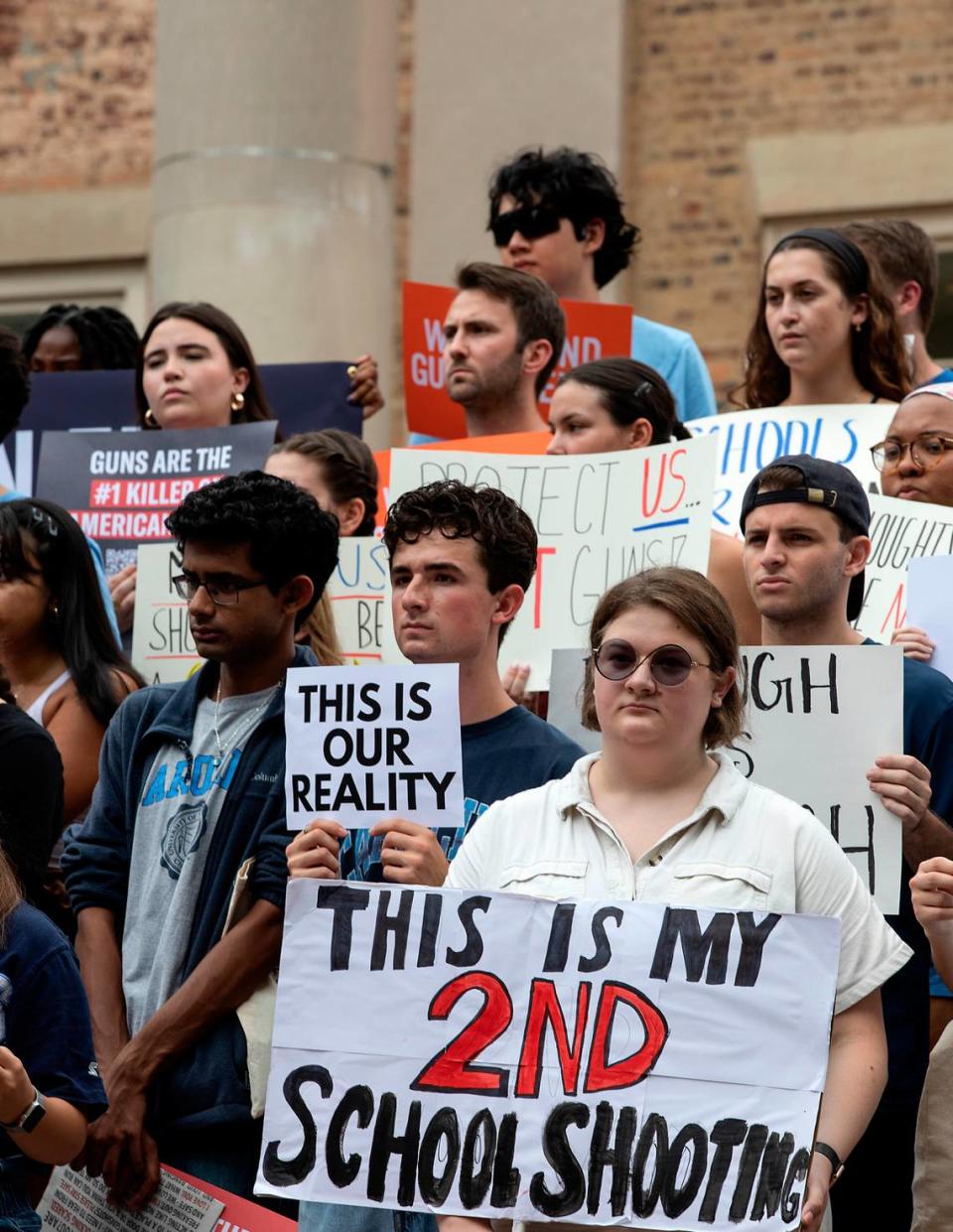Could the UNC shooting suspect legally possess a gun? Here’s what we know so far.
The graduate student accused of fatally shooting a UNC professor on campus last week is in the United States on a student visa, Orange County District Attorney Jeff Nieman said — likely requiring an exception under federal law to legally purchase or possess a handgun.
It was unclear whether the alleged gunman qualified for any of those exceptions. But the local sheriff said Tailei Qi did not obtain or apply for a concealed carry permit in Orange County. Nor did Qi seek a permit to buy a handgun before state lawmakers ended that requirement in March, Orange County Sheriff Charles Blackwood said.
Qi faces a first-degree murder charge in the death of Zijie Yan, a professor in UNC-Chapel Hill’s Department of Applied Physical Sciences.
The death led to a three-hour lockdown of campus on Aug. 28.
Both men worked on the same research team, in a lab run by Yan. Qi, 34, who is from China, also faces a misdemeanor charge of possessing a firearm on educational property.
“Someone here on a nonimmigrant visa is not legally permitted to purchase or possess firearms, and he was here on a nonimmigrant visa,” Nieman said.
But that federal law allows for exceptions, according to the Bureau of Alcohol, Tobacco and Firearms, such as “a valid hunting license or permit, admitted for lawful hunting or sporting purposes.”
Nieman could not say whether Qi met any of them. A spokeswoman for the U.S. attorney’s office for North Carolina’s Middle District said they could not comment.
The murder weapon, a 9 mm pistol, had yet to be recovered as of Thursday, Nieman said. He declined further comment on how Qi may have obtained a gun.
While federal law allows legal immigrants to purchase and possess firearms, nonimmigrants in the U.S. on study visas are generally excluded.
Federal law also makes it a felony for a foreign national in the country on a nonimmigrant visa to purchase or possess a firearm. Anyone who knowingly sells or gives a firearm to someone on a nonimmigrant visa can also face a felony, said Andrew Willinger, the executive director of the Duke Center for Firearms Law.
He said those federal laws are facing some uncertainty following the U.S. Supreme Court’s Bruen decision last year that struck down New York’s strict law limiting the right to carry firearms. That decision has brought new challenges to laws that limit gun possession.
Gun permits and background checks
Qi had been working for the Applied Physical Sciences department at UNC since 2022 after earning his master’s degree from Louisiana State University. He received his undergraduate degree in physics from Wuhan University in China, according to his lab profile.
Blackwood said Qi had not obtained or applied for a handgun permit before state lawmakers — over Gov. Roy Cooper’s veto — ended the handgun permit requirement that included background checks by sheriffs’ offices. Qi also hadn’t sought a concealed carry permit, which remains on the books, the sheriff said.
That leaves gun dealers with the responsibility for background checks, using the federal National Instant Criminal Background Check System. That system can flag would-be buyers who hold nonimmigrant visas.
Gun safety advocates say the federal system has flaws and loopholes, such as allowing private sales without background checks. North Carolina is seeing spikes in gun thefts, particularly from unlocked cars, putting more guns on the black market.
Republican lawmakers who control the General Assembly have passed measures to make it easier to purchase and carry handguns over the past decade. The new law ending the pistol permit system includes an educational campaign to persuade gun owners to secure their weapons, but there is no penalty for those who leave guns where they can be easily stolen.
Lawmakers also have also not taken up legislation requiring stolen guns to be reported to police.


